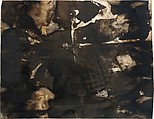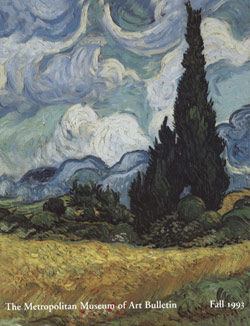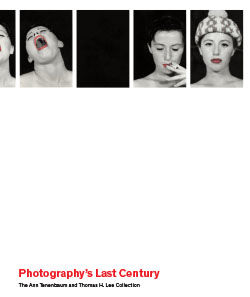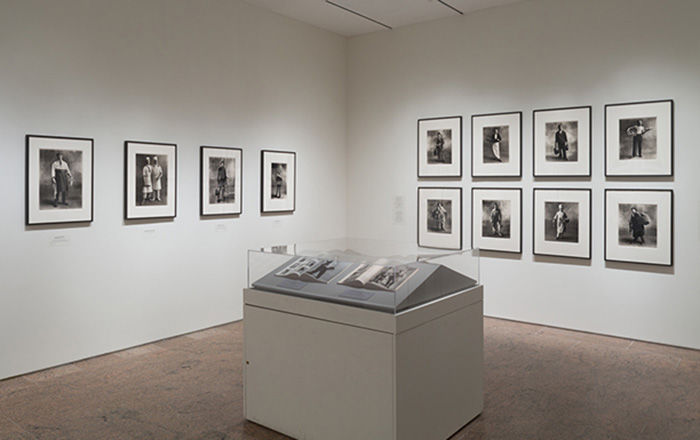Untitled
Sigmar Polke German
Not on view
One of the most provocative artists of postwar Europe, Sigmar Polke has created works critical of Western culture since 1963, when he and fellow artist Gerhard Richter began using photography as the basis for paintings that satirized the look and message of consumer culture. Since that time Polke has continued to use photography as the breeding ground for innovation.
During the 1970s Polke painted little but traveled widely with his camera—to Paris, New York, Brazil, Afghanistan, and Pakistan. His subjects were night life, low life, the underworld, and the Third World—arenas in which life is lived in defiance or ignorance of established Western social rules. The basis of this image is one of a series of negatives exposed in a bar in São Paolo, Brazil, showing a group of men drinking.
Polke considers the darkroom a sort of alchemic laboratory in which he can explore infinite mutations of imagery. With the negative in his enlarger, the artist developed this large sheet selectively, pouring on photographic solutions and repeatedly creasing and folding wet paper. The resulting abstract organic forms thus issue from and reexpress the boozy, convivial energy of the scene.
Due to rights restrictions, this image cannot be enlarged, viewed at full screen, or downloaded.



